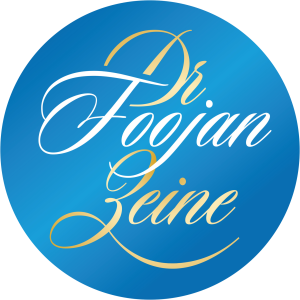
Wednesday Aug 14, 2024
E362–InnerVoice- A Heartfelt Chat with Dr.F oojan Zeine & Amy Margolis on the Relationship between Food & Trauma
E362 – "Inner Voice: A Heartfelt Chat with Dr. Foojan Zeine." In this episode, Dr. Foojan Zeine chats with Amy Margolis, LCSW, a licensed therapist and co-clinical director of Santa Monica Counseling. Amy works with individuals and couples and runs groups for clients seeking healing in eating disorders, addictions, anxiety, depression, and related issues. She also supervises ASWs and AMFTs in gaining their clinical hours. Amy is a Meisner and Groundlings trained actor outside the clinical world, focusing primarily on voice-over work. She has worked for Nickelodeon, Netflix, Disney Junior and on many commercials, podcasts, and video games. Today, we will discuss her latest book, "Here is the Memo – A Life Guide for Women." You can follow Amy on Instagram @heres_the_memo and Facebook at Amy Margolis LCSW. https://amymargolislcsw.com/media/
20 Best California Mental Health Podcasts https://podcasts.feedspot.com/california_mental_health_podcasts/
Check out my website:
www.FoojanZeine.com www.AwarenessIntegration.com,
Summary Dr. Foojan and Amy Margolis discussed her book Here's the Memo, which aims to guide and support individuals through various life chapters. They discussed the complex relationship between food, trauma, and addiction. Amy explained how people often turn to food as a way to cope with trauma or emotional pain, leading to unhealthy eating habits and a cycle of self-hatred, highlighting the socialization of food and its role in comfort and nurturing. They both emphasized the need to address the root trauma instead of using food as a coping mechanism. Amy shared her journey with eating disorders and the lessons she learned along the way. She emphasized the importance of breaking free from strict rules and restrictions, creating a balanced and fulfilling life, and highlighting the need for a gradual change process rather than immediate strict rules. Amy explained the concept of the "critter brain," which consists of three parts: the brain stem, the emotional brain (the amygdala), and the prefrontal cortex. She emphasized that the brain sees change as a threat and that relapse is a normal part of the process, especially when one is trying to break free from old patterns. Dr. Zeine added to this by sharing her experiences with individuals who have gone through abuse and addiction, highlighting that relapse is often a part of the learning process and that each time it occurs, there is an opportunity to gain new insights. They discussed the concept of emotional freedom and its role in personal growth. Emotional freedom is recognizing one's power and agency in situations rather than feeling victimized by external circumstances. Emotional freedom also involves letting go of things beyond one's control and focusing on what can be changed. Both stressed the importance of self-reflection and seeking support from others as part of the growth process. They shared their views on self-care, self-love, and self-awareness in relationships. They emphasized that individuals should prioritize their own needs and emotions rather than focusing on their partners' faults. They also highlighted the concept of ebb and flow in relationships, suggesting that periods of distance or separation could strengthen the bond between partners. Amy encouraged people to live their lives to the fullest and pursue their dreams, while Dr. Zeine stressed the importance of maintaining authentic connections with others.
No comments yet. Be the first to say something!